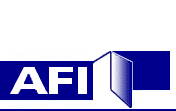1. |
Introduction |
||
This guidebook is for organizations that want to design and implement an asset-building project supported by the Federal Assets for Independence Program (AFI). This innovative program explores new ways of helping individuals with low incomes become economically self-sufficient for the long-term. Such security may come from a more stable and better wage and more stable housing. AFI is administered by the Office of Community Services (OCS), within the Administration for Children and Families (ACF), U.S. Department of Health and Human Services (HHS).
Through the AFI program, OCS administers grants of up to $1 million to nonprofit and local, State, and tribal government agencies and their partners to manage asset-building projects. The projects typically include several components. They include financial education to clients, assistance with saving money, counseling on financial issues, and support in obtaining any of three assets: a first home, postsecondary education, or small business capital. Participants may also save funds for transfer to a dependent.
The centerpiece of the AFI program is the Individual Development Account ( IDA) . An IDA is a bank account that allows individuals and families to save money and eventually acquire an economic asset to build long-term financial stability. AFI Program goals are to explore and identify innovative models for delivering IDA s and related services and to measure impacts on participant families and their communities.
This guidebook outlines the necessary elements of successful AFI Projects. It is designed for organizations new to the AFI program and is a complement to the official guidance for applying for an AFI grant-the AFI program announcement. The announcement includes all official instructions and other guidance for submitting an application for funding. (Please see the Appendix for a copy of the announcement.)
The guidebook begins with an introduction to the Office of Community Services. Section 2 presents an overview of the asset-building approach to reducing poverty in America, a 21st century strategy that has tremendous potential. Section 3 provides a detailed description of the core elements of successful AFI Projects, including suggestions from some of the most well established AFI Projects across the nation. The guidebook ends with a checklist of information to include in an application for AFI funding. Throughout, you will find helpful sidebars with additional information, tips, and insights from current AFI Projects. Finally, the appendices feature sample documents and many other materials for developing a high-quality AFI Project.
The Office of Community Services: Who We Are
OCS administers numerous vital programs that support low-income individuals and families. The mission of the Office of Community Services is to increase the capacity of individuals and families to become more self-sufficient and assist them in building, revitalizing, and strengthening their communities. OCS has its roots in the "War on Poverty." Many of its programs originated within the Office of Economic Opportunity in the 1960s. In keeping with that history, OCS works in close partnership with States, nonprofit organizations, faith-based groups, and others, to give a helping hand to low-income individuals, families, and communities.
In addition to managing the Assets for Independence Demonstration Program ( AFI ), OCS administers several other "social safety net" programs. These include three block grant programs administered in partnership with States and numerous competitive grant programs offering funding directly to community-based organizations.
OCS 's flagship program is the Community Services Block Grant ( CSBG ), through which OCS provides core funding to States for more than 1,100 Community Action Agencies across the nation. The CSBG enables this network of nonprofit, faith-based, and government agencies to provide an array of services to families with low income, including day care, job training, job development, emergency services, and transportation. OCS also administers the Social Services Block Grant, which provides substantial flexible funding to States for a host of services such as day care and emergency services, among others. Through the Low Income Home Energy Assistance Program (often called LIHEAP ), OCS provides block grant funding to State agencies to support home energy assistance and to help families make their homes energy efficient.
OCS 's competitive grant programs, which include AFI, are all designed to strengthen community-based organizations in social service delivery and economic development services for the benefit of families with low incomes. The Community Economic Development ( ced ) program and the Job Opportunities for Low Income Individuals ( joli ) program provide grants for community development corporations to support commercial development and create new jobs in low-income neighborhoods. Through CED and JOLI, OCS also supports microbusiness development and self-employment initiatives.
The Community Food and Nutrition program provides funding for community organizations that coordinate community food-access projects for families with low income. The Rural Facilities Program provides training and technical assistance for small rural communities in the development of sewer and wastewater systems. The National Youth Sports Program enables more than 250 colleges and universities across the nation to sponsor summer sports and youth development programs for at-risk youth. Finally, the Compassion Capital Fund builds the capacity of emerging faith- and community-based groups with the long-term goal of enhancing the availability of services in communities nationwide.

 PDF Version (42KB)
PDF Version (42KB)